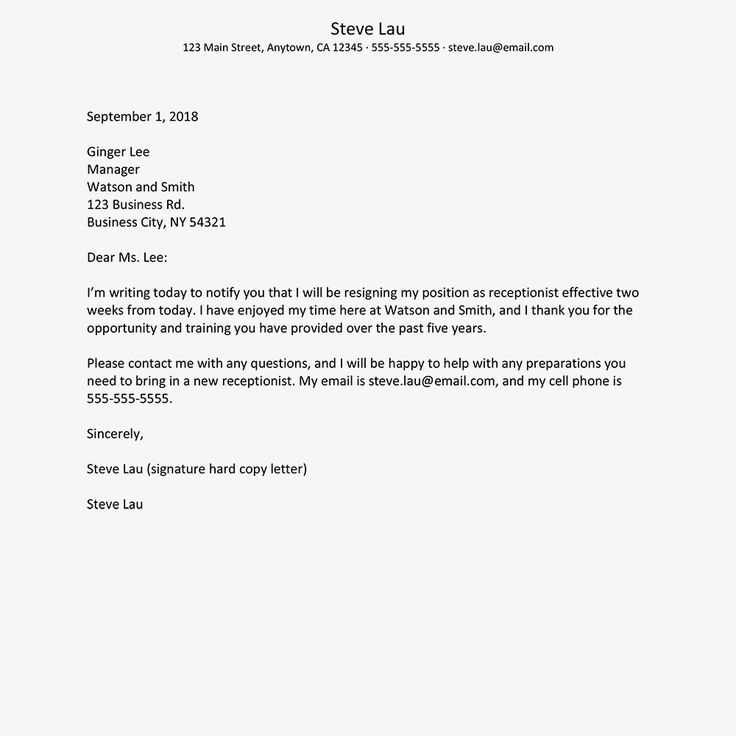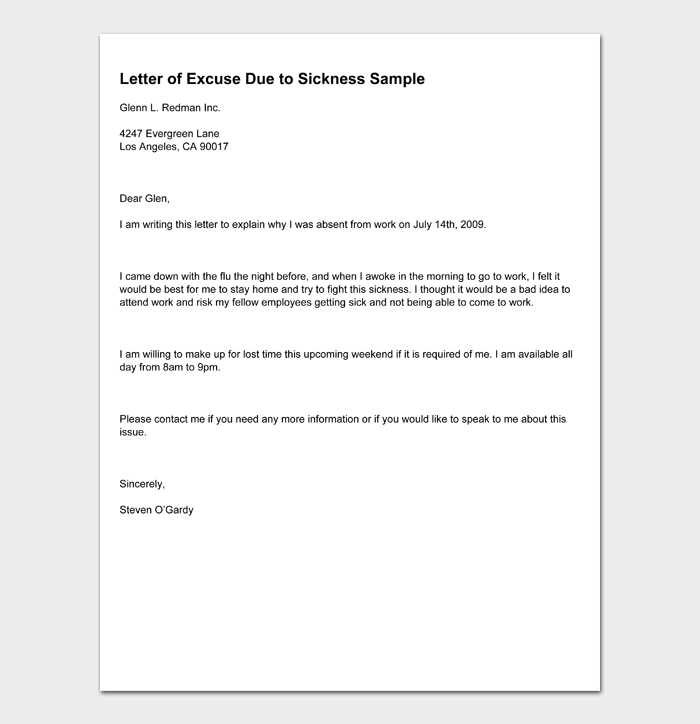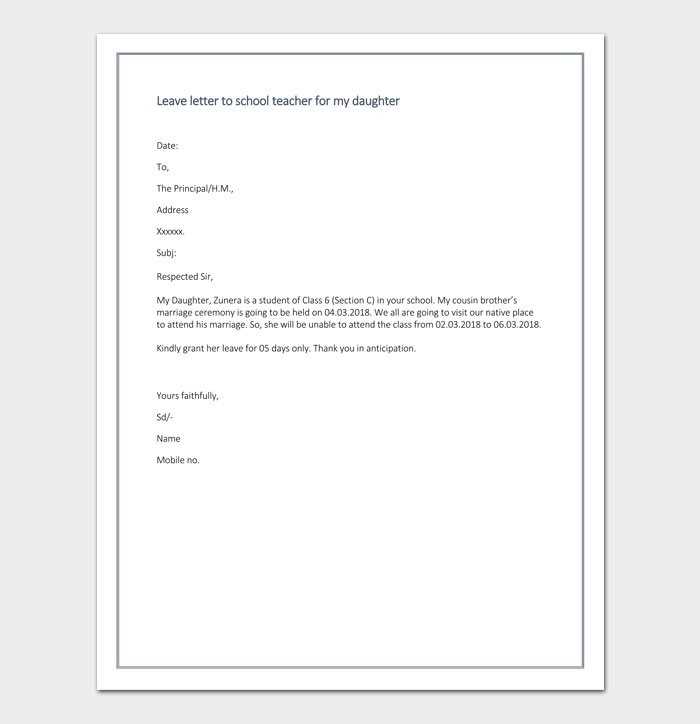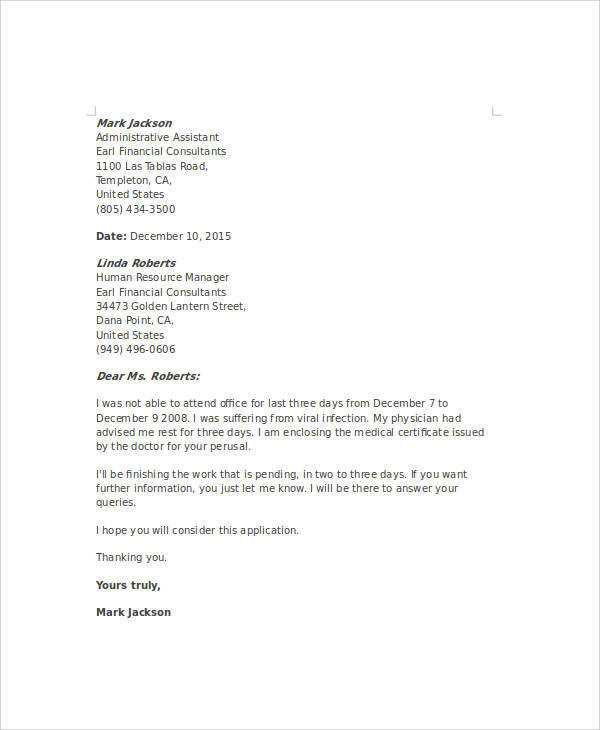Work excuse letter template

To draft a clear and professional work excuse letter, focus on being direct and concise. Begin with a brief statement explaining the reason for your absence, whether it’s due to illness, a personal matter, or an emergency. Be honest and specific, but avoid unnecessary details that don’t add to the core message.
Use a respectful tone throughout, addressing your manager or supervisor appropriately. Mention the exact dates you will be unavailable and, if possible, offer a plan for how your workload will be handled in your absence. Ensure you express your willingness to catch up on missed tasks or contribute remotely if the situation allows.
A well-written excuse letter should also include a closing note expressing gratitude for their understanding. A simple statement like, “Thank you for your consideration,” leaves a positive impression. Keep the letter brief, without unnecessary embellishments, to maintain professionalism and clarity.
Here are revised lines without word repetition:
To keep your work excuse letter clear and concise, avoid using the same words repeatedly. Focus on varying your language to improve readability and maintain professionalism. Below are a few examples of how to revise sentences for this purpose:
- Original: “I was feeling unwell and could not come to work today because I was sick.”
Revised: “I felt unwell and couldn’t attend work today due to illness.”
- Original: “Due to a personal emergency, I am unable to come to work today.”
Revised: “A personal emergency prevents me from attending work today.”
- Original: “I am unable to work today because I have an important doctor’s appointment.”
Revised: “A crucial doctor’s appointment keeps me from working today.”
In these examples, the sentence structure and vocabulary have been changed without repeating words unnecessarily. By using varied language, your letter remains professional and clear while avoiding redundancy.
- Work Excuse Letter Template
To write a work excuse letter, be clear and concise. The key is to address the situation directly without unnecessary details. Use a polite, formal tone and focus on the reason for your absence. Below is a simple structure to follow:
Work Excuse Letter Example
Dear [Manager’s Name],
I am writing to inform you that I am unable to attend work on [Date(s)] due to [Reason – illness, personal matters, family emergency, etc.]. I apologize for any inconvenience caused and will ensure to catch up on any missed work as soon as possible. Please let me know if you need any further details.
Thank you for your understanding.
Sincerely,
[Your Name]
Tips for Writing a Work Excuse Letter
- Always address the letter to your direct supervisor or manager.
- Be specific about the dates you’ll be absent.
- If necessary, offer a brief explanation of the reason without oversharing.
- Reassure your employer that you will complete any outstanding tasks.
Clearly state that you’re sick and unable to work. Begin with a brief and straightforward sentence explaining your illness and the need to take a sick day. Include the date you will be absent and mention any expected duration if possible.
Key Elements to Include
- Your name: Make sure to identify yourself at the beginning.
- Subject line: Use a simple, direct subject line such as “Sick Day Request” or “Request for Sick Leave.”
- Date of absence: Specify the exact date or dates you need to take off.
- Reason for absence: Briefly explain your illness. If you’re comfortable, provide some details, but there’s no need to go into specifics.
- Return date: Let your employer know when you plan to return to work. If you’re uncertain, give an estimate or mention you’ll follow up.
- Offer to assist: If necessary, reassure your boss that you’ll make up any missed work or arrange for someone else to cover for you if applicable.
Example Sick Day Work Excuse Letter

Dear [Manager’s Name],
I’m feeling unwell today and won’t be able to make it to work. I have [mention symptoms briefly, e.g., a fever and sore throat] and I plan to rest and recover at home. I expect to be back by [return date]. Please let me know if you need any urgent updates from me during my time off.
Thank you for understanding.
Sincerely,
[Your Name]
Keep your letter brief and clear. Use a formal font like Times New Roman or Arial, sized at 12pt. Maintain standard margins of 1 inch on all sides to ensure readability. Align the text to the left for consistency.
Structure and Layout
Begin with your name and contact details at the top of the letter, followed by the date. Below the date, include the recipient’s name and title, then the company name and address. This ensures the letter looks structured and formal. When addressing the recipient, use their correct title, like Mr., Mrs., or Dr.
Content Clarity
Start the letter with a polite greeting. Mention the reason for your absence and the expected duration. Avoid unnecessary explanations; stick to facts. Conclude by expressing your willingness to assist in catching up on missed work, ensuring your commitment to your responsibilities is clear.
Be clear about the situation. Start by stating the reason for your absence without unnecessary details. Focus on the emergency, but avoid oversharing. If it’s a family emergency, a brief mention of the relationship (e.g., “my father is ill”) should suffice. If the situation involves your own health, simply stating that you are unable to work due to a personal matter is enough.
Details of Absence

Provide specific dates and times for your absence, if known. This helps the employer plan for your absence and adjust tasks if needed. If you are unsure about the length of your absence, mention that you will follow up once the situation stabilizes.
Contact Information
Ensure your employer has a way to reach you in case of urgent work-related matters. Even if you’re dealing with a personal emergency, showing that you’re available for critical issues can demonstrate responsibility and maintain a sense of professionalism.
If possible, mention any actions you’ve taken to minimize the disruption caused by your absence. For example, you could inform your employer about a colleague covering for you or a task that’s already completed before your absence.
End your letter by expressing appreciation for their understanding and support during the emergency. Keep the tone polite and professional, without over-explaining your situation. This shows you respect the work environment while dealing with personal matters.
Submit an excuse letter when a family event or emergency requires you to take time off work. This includes situations like the death of a loved one, a family member’s serious illness, or urgent personal matters that require immediate attention. Providing a clear and concise explanation of the situation, without oversharing personal details, is important for maintaining professionalism.
1. Urgent Family Emergencies
In the case of a sudden family emergency, such as a hospitalization or unexpected event, notify your employer as soon as possible. This allows them to adjust expectations and make any necessary arrangements in your absence. Your excuse letter should outline the reason for your leave and provide an estimated timeframe for your return, if possible.
2. Family Events with Advance Notice

For planned family events, such as weddings or graduations, notify your employer well in advance. This gives them time to plan for your absence. Clearly mention the date and duration of the event and offer to help with any work handover before your leave.
| Type of Family Matter | When to Submit | Additional Considerations |
|---|---|---|
| Family Emergency | As soon as possible | Provide a brief explanation, without oversharing |
| Planned Family Event | At least a week in advance | Offer assistance with work handover |
| Bereavement | Immediately | Specify time required for mourning and any immediate obligations |
If you need to request time off from work, here are some sample letters you can tailor to fit your specific situation.
1. Sick Day
Dear [Manager’s Name],
I am writing to inform you that I am feeling unwell today and will be unable to come to work. I will keep you updated on my condition and hope to be back soon. Please let me know if you need any further information.
Thank you for your understanding.
Best regards,
[Your Name]
2. Family Emergency
Dear [Manager’s Name],
Due to an unforeseen family emergency, I am unable to come to work today. I apologize for the short notice and will keep you updated on the situation. Thank you for your support and understanding during this time.
Best regards,
[Your Name]
3. Medical Appointment
Dear [Manager’s Name],
I have a scheduled medical appointment on [date] that requires me to take the day off. I will ensure that all my tasks are up to date before I leave. Please let me know if there are any urgent matters that need to be addressed before I go.
Thank you for your consideration.
Best regards,
[Your Name]
4. Personal Reasons
Dear [Manager’s Name],
Due to personal reasons, I am unable to attend work on [date]. I will ensure my duties are covered and will be back as scheduled. Please let me know if you need anything in my absence.
Thank you for understanding.
Best regards,
[Your Name]
5. Bereavement Leave
Dear [Manager’s Name],
I regret to inform you that I have experienced a loss in my family and will need to take a few days off to attend the funeral and handle related matters. I appreciate your support and understanding during this difficult time.
Best regards,
[Your Name]
Be direct and concise. State the reason for your absence briefly, without going into unnecessary details. If the cause is personal, simply refer to it as “personal reasons” rather than offering specifics. If you’re unwell, just mention “illness” or a general description of the condition. There’s no need to provide medical diagnoses or lengthy explanations.
Next, clarify the duration of your absence. Include the expected date of your return or any changes in your schedule, if applicable. This helps your employer plan accordingly without any uncertainty.
Finally, express appreciation for understanding and offer to assist with any urgent matters remotely if possible. Keep the tone polite and professional without adding extra information that doesn’t contribute to the main point of the letter.
A clear structure makes your work excuse letter more credible and professional. Begin with a polite salutation and state the purpose of your absence concisely. Mention the dates you were or will be absent, and briefly explain the reason for missing work. If relevant, add any medical documentation or leave approval references.
Specific Examples
For instance, instead of just saying “I am sick,” be more specific, such as “I am experiencing flu symptoms and will need to take sick leave from January 28 to January 30.” If you’re attending a personal appointment, mention it briefly: “I have a scheduled medical procedure on January 28, which will require my absence.” Avoid too many personal details, and stick to facts that justify your absence.
Closing the Letter
Finish with an offer to provide further information if needed and thank the recipient for their understanding. Reaffirm your commitment to returning to work as soon as possible. A polite closing like “Sincerely” or “Best regards” followed by your name is appropriate.